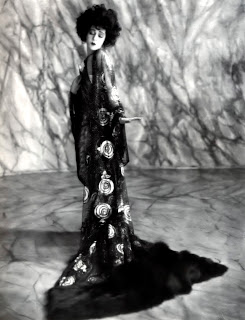Happy New Year everyone! It's time we get back in the swing of things, and what better to start with than one of Griffith's epics?
First, a disclaimer: I've never seen Birth of a Nation. Now I know what you're thinking: "Jen, how can you call yourself a film buff - a silent film buff - and still not have this one under your belt?" My reply would be "My good reader, I don't wear belts."
*ba-dum ching*
This was my introduction to the world of Griffith, and I enjoyed it for the most part; the main drawback for me was the film's length. I found myself on the edge of my seat for the Babylonian and Modern Day sequences, but when the French Renaissance sections came on I was - to be blunt - bored out of my skull. I realize how each part was necessary to tell his story in whole, but I can't help but feel Griffith could've left out the French part entirely and still have had a wonderful film. Having said that, Intolerance is beautifully shot, with an ageless story to tell, punctuated by Lillian Gish's endless rocking.
I also discovered the revelation that is Mae Marsh. I have rarely seen - especially in a picture this early on - someone with such natural skill. She becomes the Dear One: innocently effervescent, then heartrendingly sad; a quiet, gentle soul who becomes the fires of Hell itself when her child is threatened. Her scenes with Bobby Harron are so frank and intimate you almost forget it's a movie.
Constance Talmadge is the Mountain Girl, and I don't think I've cheered that hard for someone in a long time. Her tough and spunky portrayal rescues the Babylonian story from being a one-dimensional condemnation of decadence.
Definitely see this one - it is considered a masterpiece, and for good reason. Now if you'll excuse me, I'm off to buy a belt.












